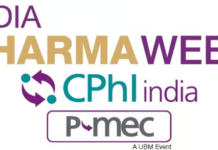New Delhi, January 08, 2018: Idea Cellular is looking at a fund infusion via their promoter group Birla TMT. The founders are going to raise their stake now to 47.2% versus 42.4% earlier. How are you looking at Idea’s fund raising in light of what is going on in the telecom space right now?
This indicates that Birla has a significant interest in this space and they are backing this business. This should give significant comfort to the minority shareholders.
Secondly, the tide has turned in the telecom space. A new player coming in with deep pockets and a technology which was markedly ahead of the incumbents and that led to a consolidation in the space also because of pricing of course as we all know. Now that the consolidation has happened, this space is much more amenable to future growth.
A significant player bringing in so much capital into his existing business shows the commitment and shows the confidence that the incumbent has or the promoter has in this business over the next 10 to 15 years. Clearly, this will be taken as a positive by the markets particularly for this name as also for the sector as a whole according to m.economictimes.com.
I must congratulate you on your call on all these rice companies almost being taken as consumer stocks by the market. You had them on your radar several months back. What is the outlook? The sector dynamics seems to have turned in their favour now?
I will talk a little bit about what really was the perception of the markets in these names and how these names were very different from the perception. The perception was that the rice players are really traders in commodity, the commodity being paddy and the final product being rice. As is the case in most commodity plays, the final product price is assumed to be a direct derivative of the commodity which in this case was paddy. What the market missed out on was the fact that by branding their product, most of these companies had disassociated the final product price from the commodity price and as a result ,while commodity prices would be fluctuating, the final product price could have been maintained at a certain level or even raised.
According to m.economictimes.com as a result, what one saw in many of these companies is a secular growth in their margin structure and that of course led to the return on capital employed in many of these names going up materially. We do think that this is a sustainable cycle. We think that particularly in the basmati rice space, you have the whole market. Basmati rice is just one per cent of the whole market and that number is going to increase significantly with modern trade and with affluence going up.
Global consumers are also taking to this product quite significantly. All of these things are going to lead to this space becoming much more prominent as an FMCG player rather than as a commodity play over a period of time. Some of these players in their core business have ROCs as high as 35% to 40% and that itself should indicate to the investor community that this is not a commodity play. This is much more of an FMCG play which is something that really was not perceived to be the case till even a year ago.
Give us a sense of what the outlook is on pharma. Do you think that we could see some sort of a bottoming out? Do you think the overall valuation picture is somewhat justified now? How are you reading into earnings?
Metaphorically, the problems in pharma, particularly with the exporters to the US were twofold; one was that you had USFDA coming in and applying restrictions on facilities in the country. The second was that the distribution in the US particularly was getting consolidated and that was leading to a negative price action in many of these companies’ products.
In essence, when you had a facility, which was say a Mercedes facility metaphorically and it was producing a Maruti 800, what you had was Mercedes costs but the price of the product which was a Maruti 800 price. As a result, margins contracted.
Just to give you a case in point, Sun Pharma till about three years ago used to do a margin structure of about 40% on EBITDA. In the previous quarter, they guided for a margin of 22%. So, that is the magnitude of fall that one saw in the margin structure in many of these companies.
I have given you a case in point. Now a negative case can be made from Maruti 800. These companies will start manufacturing autos but that seems like a long shot. On the other hand, if they revert from Maruti 800 to Mercedes, and I am talking here of low value drugs to really high value drugs, then the cash flow structure will change meaningfully. This is the likely scenario. Of course, one does not know the time horizon in which this will happen but say in six months, a year or a year-and-a- half, that is the trajectory that many of these companies will take. If that were to happen and cash flows were to inflate by as much as what they were in the past, these plays will become very interesting bets.
They have contracted valuations, the cash flows are low, the valuations will also rise along with cash flows. These could give very healthy returns over a period of time. So, of course, the time horizon as I mentioned is something that will remain uncertain but if you have a two-to-three year time horizon, this space looks very interesting m.economictimes.com further added.























